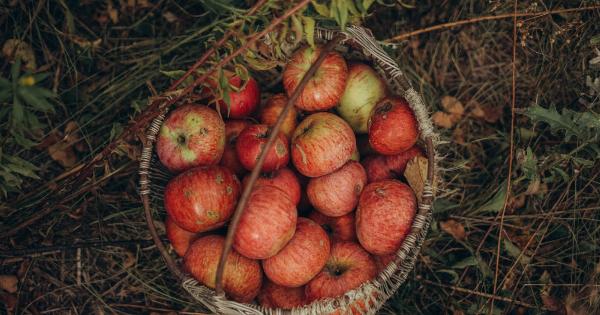Fruit juice has long been marketed as a healthy way to consume fruits and vegetables. However, recent research has shown that drinking fruit juice regularly could be a hidden risk for premature death.
According to a study published in JAMA Network Open, drinking just four ounces of fruit juice a day is associated with a 24% higher risk of premature death. This article will explore the ways in which consuming fruit juice can put your health at risk and why you should consider limiting your intake.
Concentrated Sugar
The most significant risk associated with drinking fruit juice regularly is the high level of sugar in each serving. While the sugar in fruit is natural and vital for the human body, the concentrated sugar in fruit juice is different.
The juicing process removes the fruit’s fiber, leaving only its sugar and water content. For example, an eight-ounce glass of orange juice contains around 21 grams of sugar, which is almost the same amount of sugar in an eight-ounce bottle of soda.
Drinking juice regularly can lead to an overconsumption of sugar and can result in health problems such as obesity, diabetes, and heart disease.
Increased Fructose Consumption
Fruit juice also contains high levels of fructose, which is a type of sugar that is processed by the liver. When you consume too much fructose, your liver can become overworked and convert the fructose into fat.
This fat can accumulate in your liver and lead to non-alcoholic fatty liver disease. Additionally, high fructose consumption can cause insulin resistance and raise triglyceride levels, increasing the risk of heart disease.
Nutrient Absorption
Another downside of drinking fruit juice is the limited nutrient absorption. The nutrients in fruits come from their fiber, skin, and seeds, which are stripped away during the juicing process.
This means that the nutrients in fruit juice are not as easily absorbed by the body as those from whole fruits. Additionally, most commercial fruit juices are pasteurized, which can further reduce their nutrient content. This lack of nutrients can contribute to malnutrition and other health problems over time.
Hidden Artificial Ingredients
Many commercially sold fruit juices contain added artificial sweeteners, flavors, and colors. These ingredients can increase the risk of health problems such as allergies, ADHD, and cancer.
For example, yellow and red food dyes used in fruit juice have been linked to behavioral issues and hyperactivity in children. Additionally, many fruit juice brands add vitamins and minerals to their products to market them as healthy, but these additives are often synthetic and not easily absorbed by the body.
Alternatives to Fruit Juice
If you are looking for healthier ways to consume fruits and vegetables, there are many alternatives to fruit juice. One great option is to make a smoothie.
Smoothies contain the fiber and nutrients of whole fruits and vegetables and allow you to customize your blend. Additionally, smoothies made with dairy or plant-based milk can provide essential calcium and proteins for your body.
Another option is to infuse water with fruit. Infused water provides a more refreshing and flavorful way of drinking water while providing you with the nutrients and fiber of fruits.
Making infused water is simple; you can add your favorite fruits and herbs to a pitcher of water and refrigerate it overnight. Some popular fruits to use for infused water include lemon, lime, cucumber, strawberry, and watermelon.
Fruit is also a simple and healthy snack option. Rather than drinking fruit, try incorporating whole fruits into your diet. You can prepare fruit salads, smoothie bowls, or simply grab an apple or banana for a quick snack.
Whole fruits provide you with all the necessary nutrients and fiber and are a better option than fruit juice.
Conclusion
In conclusion, while fruit juice may seem like a healthy option, it is not without its risks.
The high sugar content, increased fructose consumption, limited nutrient absorption, and artificial ingredients can put your health at risk and increase the chance of premature death. It is crucial to limit your intake of fruit juice and focus on whole fruits and more wholesome alternatives. By choosing to incorporate whole fruits and vegetables into your diet, you can improve your health and reduce the risk of health complications.




























